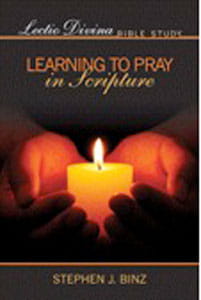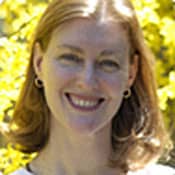And he who sat upon the throne said, "Behold, I make all things new." Also he said, "Write this, for these words are trustworthy and true." (Revelation 21:5)
Stephen J. Binz's passion is teaching Catholics to engage in an intimate and powerful dialogue with God through Sacred Scripture. With graduate degrees from the Pontifical Biblical Institute in Rome and Hebrew University in Jerusalem, he is a much sought-after author and speaker. Ten years ago, he completed additional graduate studies in social work and psychotherapy, for a "change of pace," and it added a compelling emphasis to his writing and speaking efforts.
"The scriptures are the literature of the people of God, but they are also about relationships," he says. "In scripture we discover the relationship of God with His people, and God's people with one another. The scriptures on paper are paper and ink, but the Word of God is a personal word, God's personal communication to His people. So the Word is broader than the written scripts."
When asked why the focus on relationships is key, he explains, "I've been writing Catholic Bible studies for 30 years, and whenever I go out to speak or teach, people continually ask the same question. They are searching: 'How do I make this personal? How do I experience scripture in a way that makes a difference in my life?'"
The answer? With the ancient practice of Lectio Divina.
Lectio Divina involves four basic steps: reading scripture, reflecting on its meaning, responding in prayer, and adding some form of resolution to apply any new insights to one's own life. In his dynamic and user-friendly new Lectio Divina Bible Study series from Our Sunday Visitor, Stephen breaks the process down into five "movements" which clarify the process even further:
"I include five movements in each of the lessons: listening, understanding, reflecting, praying, and acting. Of course, in addition to being some of the central movements in the Lectio Divina tradition, it's a very wonderful way to learn! Sometimes we just read and try to understand, but this is a very holistic and integrative way of learning our faith.

"It's important to understand that the Word of God transforms us. Lectio Divina really is a dialogue with God. We listen to God through the text, and respond to God in prayer. It's sort of a gentle oscillation back and forth between listening to God and responding to Him. It is a beautiful, prayerful way to listen to God."
Stephen's enthusiasm is contagious. And the Church, he explains, is re-embracing this wise and deeply personal old practice in a big way:
"The Vatican II document on Divine Revelation, Dei Verbum, urged the Church to open wide the scriptures for all of God's people. The Church has begun to take that very seriously and to help us implement that in a variety of ways.
"One, of course, is the expanded lectionary. The three-year cycle offers Catholics a broad array of scripture for Sunday worship, emphasizing the centrality of scriptures for the Church's theology and preaching and practice. This new emphasis has led to a real resurgence in and pastoral emphasis on studying the Bible for Catholics, and that's been a very exiting work to be a part of. It's basically been my life since the early 80's and I've been doing it ever since.
"And this emphasis that came from the Council has been continued in the popes and bishops, and got a big boost with the Synod on The Bible in the Life of the Church. The Pope's recent apostolic exhortation, Verbum Domini, urged Catholics to take up the scriptures and make them an important part of Catholic life and spirituality, and urged the practice of Lectio Divina.
"And it's all a preparation for the New Evangelization. All the teachings on the New Evangelization emphasize the fact that Catholics can't evangelize others outside the Church until we ourselves are evangelized. Studying scripture is really at the heart of the evangelization of the Catholic Church.
"Prayer always leads to action, worship always leads to witness. The final dimension I add to the tradition of Lectio Divina - it's there in the tradition - but the aspect of acting on the Word, witnessing to God's Word is critical."
One wonders, since Stephen spends so much of his days researching and writing about scripture, where he finds a place in his own life to use Lectio Divina. He is quick to respond with his usual enthusiasm.





